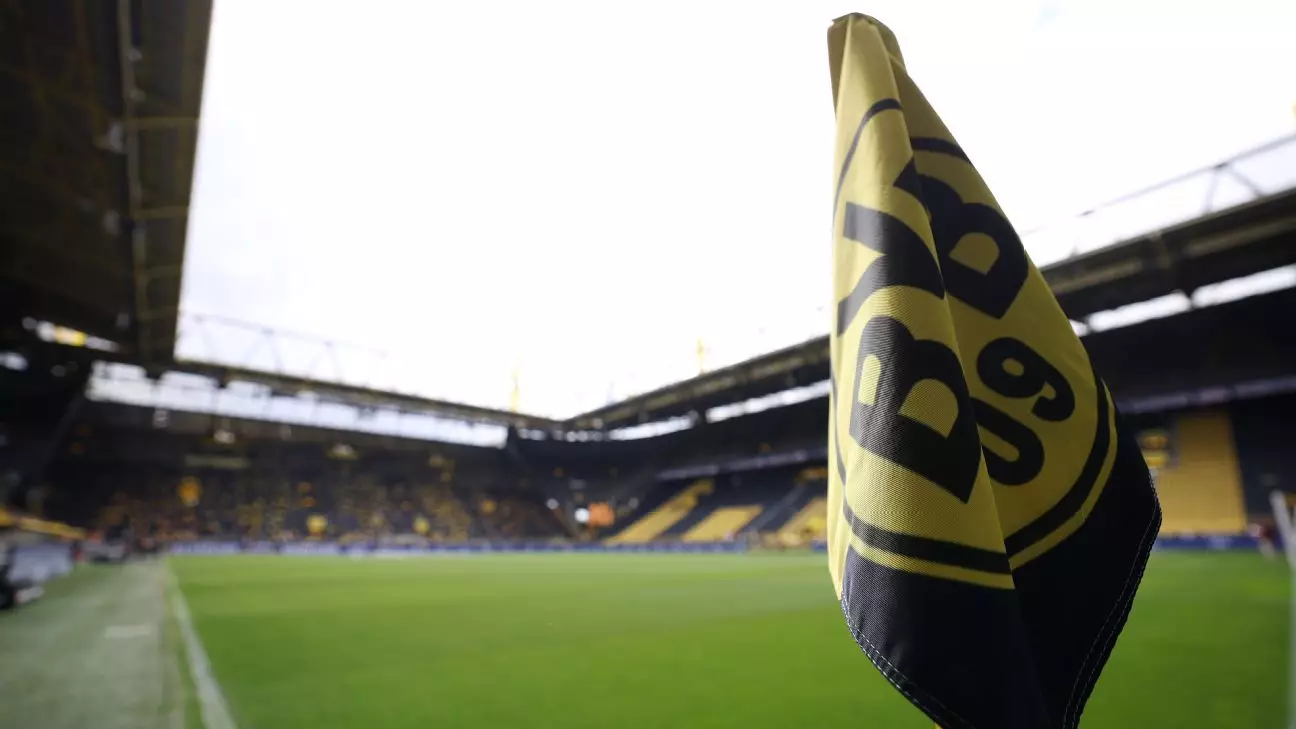Borussia Dortmund recently made headlines by signing a new sponsorship deal with the German arms manufacturer Rheinmetall. This deal includes wide-reaching advertising space, marketing rights, and event and hospitality arrangements in the stadium and on the club grounds. The timing of this deal is particularly controversial, as it comes just ahead of Dortmund facing Real Madrid in the Champions League final.
Rheinmetall’s involvement in the production of artillery shells has raised eyebrows, especially in the current geopolitical climate. The company’s plans to build a new plant in northern Germany to increase weapons production to combat Russia’s activities in Ukraine have sparked debate about the ethics of supporting such a venture. This has led to questions about whether it is appropriate for a football club to align itself with a defense company.
Dortmund chairman Hans-Joachim Watzke defended the sponsorship deal by stating that security and defense are fundamental cornerstones of democracy. He emphasized the importance of protecting these cornerstones, especially in light of the need to defend freedom in Europe. However, his comments have been met with criticism, with some questioning the club’s decision to partner with a company involved in the arms industry.
German Economy Minister Robert Habeck weighed in on the controversy, calling Rheinmetall’s sponsorship of a football club an unusual move that reflects the current reality. He highlighted the importance of addressing the arms industry in modern-day Germany, suggesting that ignoring its presence is no longer viable. This response underscores the broader ethical implications of Dortmund’s partnership with Rheinmetall.
The debate surrounding Borussia Dortmund’s sponsorship deal with Rheinmetall raises important ethical considerations. As a prominent football club with a large global following, Dortmund has a responsibility to consider the message it sends by entering into partnerships with companies involved in the arms industry. While the financial benefits of such deals may be appealing, they must be weighed against the potential harm caused by associating with entities that contribute to conflict and violence.
The controversy surrounding Borussia Dortmund’s sponsorship deal with Rheinmetall highlights the complex ethical dilemmas facing modern sports organizations. As fans and stakeholders demand greater transparency and accountability from clubs, decisions regarding partnerships and sponsorships will continue to be scrutinized. Dortmund’s handling of this situation will set a precedent for how football clubs navigate similar ethical challenges in the future.

Leave a Reply